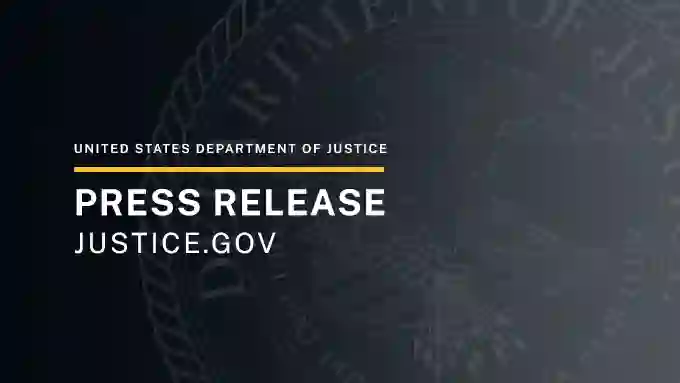A Nigerian national accused of orchestrating a large-scale inheritance scam targeting American seniors has been extradited from Poland to the United States.
Tochuwku Albert Nnebocha, 43, made his first appearance in federal court today in Miami, facing serious allegations of running a transnational criminal organization that defrauded elderly victims out of their savings.
Arrest and Extradition Background
Nnebocha was initially arrested in Poland in April 2025 after a U.S. indictment was filed in the Southern District of Florida.
He has remained in custody in Poland since his arrest, awaiting extradition to face federal charges in the U.S.
Alleged Inheritance Fraud Scheme
Court documents detail a multi-year inheritance fraud operation led by Nnebocha and associates.
Over five years, they allegedly sent personalized letters to elderly Americans claiming the recipients were entitled to multi-million-dollar inheritances from deceased family members in Spain.
Victims were told they needed to send money for supposed delivery fees, taxes, or government-related payments before receiving their funds.
Instead of receiving inheritances, victims’ payments were funneled through U.S.-based intermediaries—often former victims—before reaching Nnebocha and his associates.
According to prosecutors, the victims never received the promised funds.
Federal Charges and Potential Penalties
Nnebocha is facing charges of conspiracy to commit mail and wire fraud, as well as individual counts of mail fraud and wire fraud.
If convicted, he could face up to 20 years in prison.
A federal judge will ultimately determine his sentence, taking into account U.S. Sentencing Guidelines and other legal considerations.
Two co-defendants, Okezie Bonaventure Ogbata and Ehis Lawrence Akhimie, have already pleaded guilty and were sentenced to 97 months in prison for their roles in the same scheme.
Investigating Authorities
The investigation is being led by the U.S. Postal Inspection Service (USPIS) and Homeland Security Investigations (HSI), with critical support from the Criminal Division’s Office of International Affairs, the U.S. Attorney’s Office for the Southern District of Florida, INTERPOL, the FBI Legal Attaché in Poland, and Polish authorities.
Broader Efforts to Protect Seniors
This case is part of a broader Department of Justice initiative to safeguard American seniors from scams, both domestic and international.
These efforts target various types of fraud, including romance scams, lottery fraud, tech support scams, and grandparent scams:
-
Romance fraud: Scammers feign romantic interest to extract money.
-
Lottery fraud: Victims are tricked into paying fake fees to claim nonexistent prizes.
-
Tech support fraud: Perpetrators claim victims’ devices are infected or broken to obtain money.
-
Grandparent scams: Scammers impersonate relatives in emergencies to solicit urgent payments.
Legal Support and Resources
Senior Trial Attorney Phil Toomajian and Trial Attorney Josh Rothman from the DOJ’s Consumer Protection Branch are prosecuting the case.
Victims aged 60 or older can contact the National Elder Fraud Hotline at 1-833-FRAUD-11 (1-833-372-8311) for personalized assistance.
The hotline, operated by the DOJ’s Office for Victims of Crime, is available Monday through Friday from 10 a.m. to 6 p.m. ET in English, Spanish, and other languages.
Staff provide guidance on reporting fraud, connecting victims with the right authorities, and accessing resources for recovery.
For further information on the DOJ’s senior protection efforts, visit the Elder Justice Initiative webpage or the Consumer Protection Branch at www.justice.gov/civil/consumer-protection-branch.
Elder fraud complaints can also be filed with the FTC at www.ftccomplaintassistant.gov or by calling 877-FTC-HELP.
Presumption of Innocence
It is important to note that an indictment is only an allegation.
All defendants, including Nnebocha, are presumed innocent until proven guilty beyond a reasonable doubt in a court of law.
